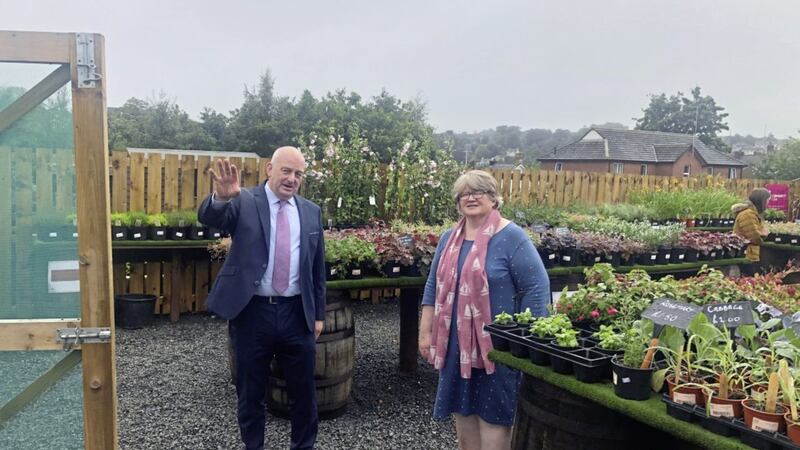BRITISH Department for Work and Pensions (DWP) secretary Therese Coffey has lauded the "phenomenal job" being done by staff working at Universal Credit service centres across the north at what has been the busiest time in their history.
She was fulsome in her praise for the efforts the 1,600 officers have made to support new claimants, many of whom have found themselves requiring a welfare safety net for the first time.
“They have played a crucial role in ensuring that families have been supported during lockdown,” Ms Coffey said yesterday after meeting staff in Belfast and Ballymena.
She was speaking at the end of a two-day fact-finding visit to Northern Ireland, during which time she also visited vulnerable adults and children at a number of locations and saw how social enterprises have tailored their work for vulnerable job-seekers.
Her trip included a stop yesterday at Access Employment Larne (AEL), which was established in 1999 as the first social firm in Northern Ireland.
It provides people age 16 to 60 with a learning disability/difficulty, autism or other disadvantage with training and employment opportunities, enhancing their lifestyle, and thus allowing them to engage more effectively in the community.
Here, Ms Coffey - who yesterday became the longest-serving DWP secretary since Ian Duncan Smith between 2010 and 2016 (his five successors Stephen Crabb, Damien Green, David Gauke, Esther McVey and Amber Rudd each lasted just months in their post) - saw how the enterprise is helping people with a learning disability to develop their skills, experience and confidence to find a job.
It included a tour of its repackaging enterprise Candyrush, which gives participants training and experience in things like stock control, warehousing and packaging, as well as Larne Community Allotments, which provides training in horticulture, growing fresh fruit and vegetables that can be sold through its garden centre shop and café.
“An innovative approach to how we support some of the most vulnerable people in our society is what we are going to need as we move out of this pandemic and beyond,” she told the Irish News.
“The country has gone through a difficult time, and we will continue to be there to help people get back on their feet and into work again.
“We know Northern Ireland has some of the most vulnerable claimants anywhere in the UK, and it's been hugely beneficial for me to observe the outstanding work and success stories like Access Employment, which we what we want to replicate as we start to grow the economy and build back better.”
On Monday her itinerary included visits to East Belfast social enterprise Specialisterne NI, a pioneer of ‘Autism at Work’, an international movement, which supports companies to identify and reduce the barriers autistic people face entering the workplace.







